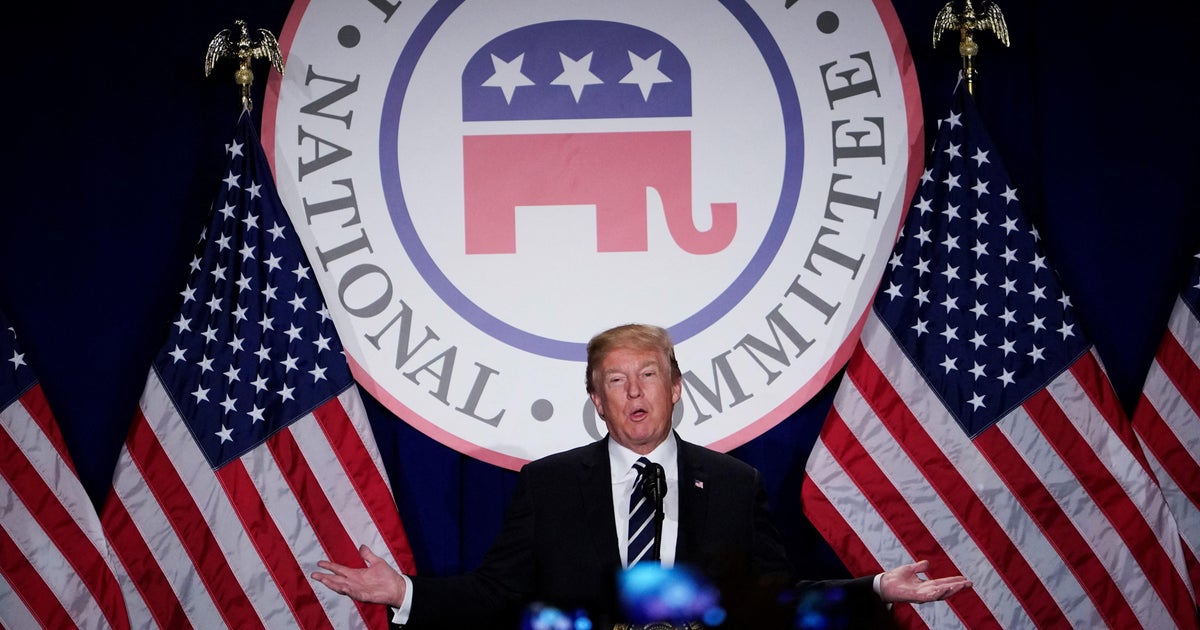Obamacare repeal: What’s in and what’s out
House Republicans unveiled their long-awaited plan to repeal and replace the Affordable Care Act earlier this month, and like any plan that would affect roughly one-sixth of the American economy, it contained a lot to digest.
Adding to the complexity is the fact that the House bill will almost surely be significantly adjusted by the time it reaches President Trump’s desk -- if it gets to his desk. Republican moderates and conservatives in the House are already demanding major changes, some of which seem mutually exclusive, and that’s before the bill even hits the Senate, where a number of key lawmakers have floated their own versions.
As the repeal-and-replace effort winds its way through Congress, here’s a real-time look at the changes being considered, and how they could affect the American health care market.
Out: Insurance tax credits based on age, income, and geography
In: Insurance tax credits based only on age
Under Obamacare, individuals in the private health insurance market obtain a subsidy to help them afford coverage. The size of that subsidy is determined by a variety of factors, including your age, where you live, and how much money you earn. Coverage is subsidized for anyone earning between 100 percent and 400 percent of the poverty level, with higher-earning individuals receiving less generous subsidies.
The Republican plan would replace that system with a tax credit indexed solely to a person’s age – from a minimum of $2,000 annually for a young person to a maximum of $4,000 annually for someone in their 60s who can’t yet access Medicare. The tax credit would not fluctuate based on a person’s income, but it would be unavailable to individuals making more than $75,000 annually or households making more than $150,000.
The nonpartisan Kaiser Family Foundation examined how the change could shift costs within the health insurance market. “Generally, people who are older, lower-income, or live in high-premium areas (like Alaska and Arizona) receive larger tax credits under [Obamacare] than they would under the American Health Care Act replacement,” the group explained in their analysis. “Conversely, some people who are younger, higher-income, or live in low-premium areas (like Massachusetts, New Hampshire, and Washington) may receive larger assistance under the replacement plan.”
Facing concerns that older Americans could face a spike in out of pocket costs under their plan, GOP leaders offered a series of tweaks to the bill in a “manager’s amendment” on Monday. According to the Associated Press, the amendment would enable the Senate to allocate $85 billion to increase the tax credits offered to Americans between 50 and 64 years old.
Out: A mandate to buy insurance or pay a fine
In: A penalty for people who have a lapse in insurance coverage
The Republican plan does away with Obamacare’s requirement for individuals to purchase health insurance or pay a tax penalty to the government. However, it replaces that provision with another designed to incentivize people to acquire and maintain health insurance. Under the AHCA, any person who goes without insurance for more than two months would be charged an additional 30 percent in premiums for one year when they re-enter the insurance market. One crucial difference: that penalty would be paid directly to the insurers, rather than the government, as is currently the case.
Out: Medicaid expansion
In: Medicaid block-grants to states
The GOP plan would dramatically transform Medicaid, the government-provided health insurance program for poorer Americans. Under Obamacare, states had the option to expand Medicaid by offering the program to people with incomes up to 138 percent of the federal poverty level. Thirty-one states and the District of Columbia opted to do so.
The GOP plan would freeze Medicaid expansion in 2020. After that time, individuals who qualified for the program in its current form would be allowed to stay on the rolls, but if they leave the program, they wouldn’t be allowed back in. The GOP plan would also change the formula used to determine how much money the feds contribute to the program.
Business Insider’s Harrison Jacobs offered a concise breakdown of the change. Under current law, he wrote, “Anyone who meets the eligibility requirements [for Medicaid] has a right to enroll, and if costs go up because of new, expensive treatments or increasing healthcare needs, states receive more federal money.”
The GOP plan, Jacobs explained, would “change the federal Medicaid funding to a per-capita spending cap, meaning the federal government would send states a fixed amount of money per Medicaid enrollee, regardless of whether that would cover needs or care, starting in 2020.”
The upshot of that change in the funding formula? The government would save roughly $880 billion in Medicaid spending over the next decade, according to the Congressional Budget Office – but that thrift could leave poorer Americans with less access to health care.
The manager’s amendment to the GOP plan also included some tweaks to the bill’s Medicaid reforms to win conservative support. It gives states the option to receive Medicaid funding as a block grant, rather than a dedicated funding stream. Proponents argue the change would give states more flexibility in administering the program, but critics worry it could erode Medicaid’s funding - and its ability to offer coverage - over time.
The amendment also allows states to impose a work requirement for able-bodied adult Medicaid recipients, and it would allow the federal government to offer higher payments to states to cover older and disabled Medicaid beneficiaries.
In: Insurers not allowed to discriminate against people with pre-existing conditions
One of the most broadly-supported insurance reforms in Obamacare – a ban on insurers declining to offer coverage to people with pre-existing conditions – would remain intact under the House Republican plan, as written.
In: No lifetime caps on insurance coverage
Another popular insurance reform from Obamacare eliminated lifetime caps on the value of insurance coverage people could obtain. That provision, too, is preserved in the AHCA.
In: Young adults can stay on parents’ insurance until age 26
One more insurance reform in Obamacare that Republicans decided to keep: a rule allowing young people to stay on their parents’ health insurance plans through age 26.
Out: An excise tax on medical device manufacturers
The Republican plan eliminates a number of taxes that helped pay for the cost of Obamacare’s private insurance subsidies and Medicaid expansion. One such casualty: a 2.3 percent excise tax on the sale of all medical devices.
The first draft of the AHCA scheduled the repeal for 2018, but the manager’s amendment accelerated that timeline, scheduling repeal for this year.
Out: A surtax on investment income and a payroll tax hike
Two tax increases in Obamacare that targeted wealthy households are eliminated under the new GOP plan: a 3.8 percent tax on investment income for households earning more than $250,000 annually, and a 0.9 percent payroll tax hike on individuals earning more than $200,000 and households earning more than $250,000.
Like the repeal of the tax on medical device manufacturers, the manager’s amendment to the AHCA moved the repeal of these taxes on high earners from 2018 to this year.
Out: Tax on indoor tanning
One of Obamacare’s nods to behavioral economics – a 10 percent excise tax on indoor tanning salons – would be thrown out by the GOP plan. Supporters of the tax argue it discourages unhealthy behavior; opponents say it has placed stress on small businesses like tanning salons.
In: A tax on “Cadillac” high-deductible insurance plans
The GOP plan would delay – but not eliminate completely - Obamacare’s tax on so-called “Cadillac” insurance plans – high-deductible policies offered by employers and insurers. Under current law, starting in 2020, any employer that offered a plan with premiums over $10,200 for individuals and $27,500 for families would have to pay an additional 40 percent excise tax on that plan. Under the House GOP plan, that tax wouldn’t kick in until 2025.



